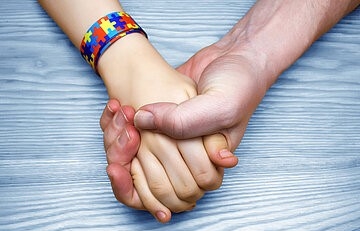Providing Social Support to Special Needs Children
Special needs children are more prone to being victimized by social bullying — being taunted, teased, excluded, and ignored — than their more typical peers. All too often, the adult response amounts to “get used to it,” and that is almost exactly the opposite of what such a child needs. Here are some ways that you, as the parent of a child with special needs, can help:
Listen Attentively and Compassionately
Once we’ve grown up, we have a tendency to discard the trials and tribulations of youth as unimportant. From the safe distance of adulthood, those problems seem entirely trivial — but we vastly underestimate, in retrospect, just how defining those moments were to our lives. If a child with special needs approaches you with a story of victimization, understand that their pain is not just real to them, but relevant to their personal development for the rest of their lives — and listen.
Don’t Take Sides (Until They’re Done Talking)
Once you’ve started listening, don’t stop listening. Particularly when you’re talking to a child that is slow to speak or unsure of themselves, there’s a powerful tendency to try to predict not just their words, but the story they’re telling and their emotional state. Don’t jump ahead, and don’t decide who the ‘good guys’ and ‘bad guys’ are in the story until they’ve said everything they need to say. Yes, it can take a long time for them to get it all out — but it’s vital that they do, so be patient and stay neutral.
Pursue Alternative Social Groups
It’s quite easy for us as parents to assume that our child will make friends, find activities to attend, and otherwise develop socially entirely on their own. But when a child is being bullied at school — the primary source of friends, activities, and social development for someone of that age — it can completely shatter their abilities in those arenas. In addition to addressing the school problem, it can be very helpful to find your child a second (or third or fourth!) social group to join. Church, Boy or Girl Scouts, Parent-to-Parent organizations, and other similar outfits can provide a set of recurring social contacts for a child to build on.
Encourage Journaling
Children who write or record their feelings and experiences create a valuable record that they can go over later to reflect upon their emotions. This can help them define the problems they are having, and give them a tool to direct the attention of the adults that watch over them.
Discuss Gossip
One of the most subtle but potent kinds of social aggression is gossip — the tendency to discuss the lives of others in a derogatory manner. Everyone gossips — people’s lives are a naturally interesting topic; and it can be a subject of bonding for a group — but children often don’t understand how gossip can hurt someone’s reputation or pride. It’s important to point out to special needs children that are the victims of gossip that not everyone who participates is necessarily an enemy or a bully, and that it’s often a lack of understanding rather than a lack of empathy that causes a gossip problem.


